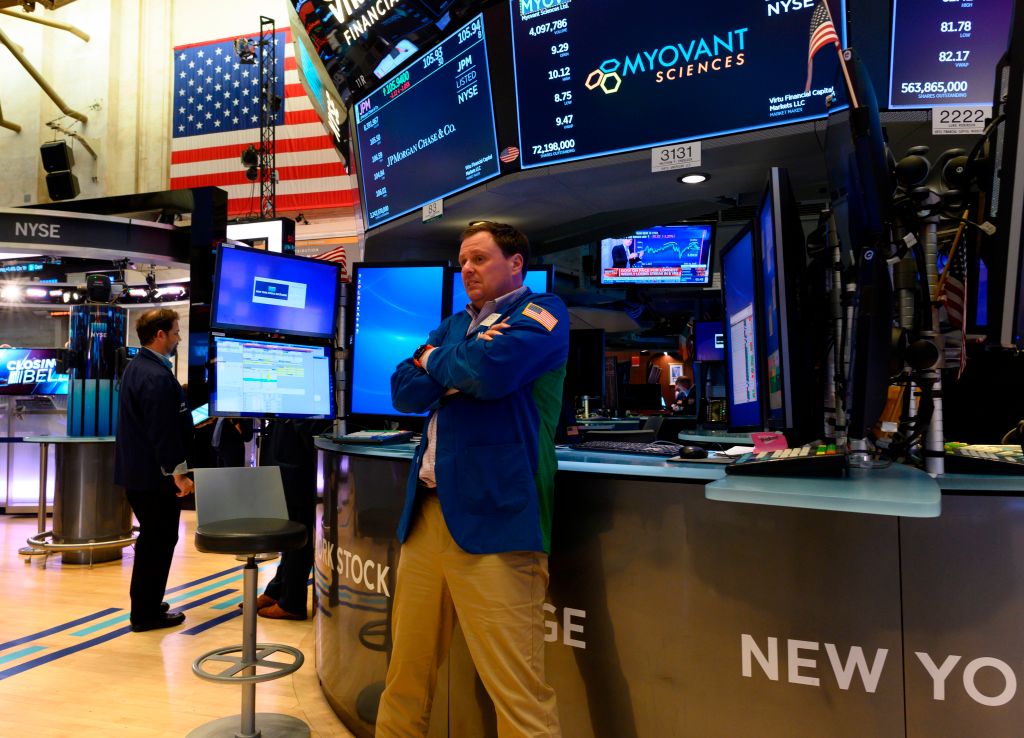Trump's tariffs might amount to the biggest U.S. tax hike since the 1980s


A free daily email with the biggest news stories of the day – and the best features from TheWeek.com
You are now subscribed
Your newsletter sign-up was successful
Acting White House Chief of Staff Mick Mulvaney insisted Sunday that President Trump is "absolutely, deadly serious" about levying a 5 percent tariff on all Mexican imports next week, rising monthly until they hit 25 percent, if Mexico doesn't stop migrants from crossing the U.S.-Mexico border. That's great news for fans of regressive taxation.
Tariffs are paid by U.S. importers, and several economic studies have concluded that most or all of Trump's tariffs so far have been paid for by U.S. companies or consumers. Eventually, consumers will pay the tax on cars and trucks, TVs, beer, and avocados from Mexico. The U.S. imported $346.5 billion of goods from Mexico in 2018, so a 5 percent tariff equals a $17 billion tax on Americans, while 25 percent would add up to $87 billion. And it's not clear Mexico could "substantially stop" migrants, even if it wanted to, especially before October.
Trump's already implemented tariffs amount to $69 billion in revenue, or 0.32 percent of U.S. gross domestic product, Courtenay Brown says at Axios, citing a Tax Foundation model, and a 5 percent tax on Mexican imports would raise that to about 0.40 percent of GDP. That's more than President Bill Clinton's 1993 tax increase, equal to 0.36 percent of GDP, "and just shy of George H.W. Bush’s increase in 1990, which amounted to 0.41 percent of GDP after year 1," Brown figures. If Trump's tariffs rise to 25 percent on Mexican and Chinese imports, that would amount to 1.45 percent of GDP, or effectively the biggest tax hike since 1968.
The Week
Escape your echo chamber. Get the facts behind the news, plus analysis from multiple perspectives.

Sign up for The Week's Free Newsletters
From our morning news briefing to a weekly Good News Newsletter, get the best of The Week delivered directly to your inbox.
From our morning news briefing to a weekly Good News Newsletter, get the best of The Week delivered directly to your inbox.
That's not the only way to think about Trump's tariffs. A MarketWatch analysis found 25 percent tariffs on Mexican and Chinese imports will erase any tax savings Americans got from the 2017 Republican tax cut, the New York Federal Reserve put the per-household cost of Trump's China tariffs at $831 a year, and a survey Monday from the National Association for Business Economics found that 60 percent of economists believe Trump's protectionist policies will tip the U.S. into recession by the end of 2020.
A free daily email with the biggest news stories of the day – and the best features from TheWeek.com
Peter has worked as a news and culture writer and editor at The Week since the site's launch in 2008. He covers politics, world affairs, religion and cultural currents. His journalism career began as a copy editor at a financial newswire and has included editorial positions at The New York Times Magazine, Facts on File, and Oregon State University.
